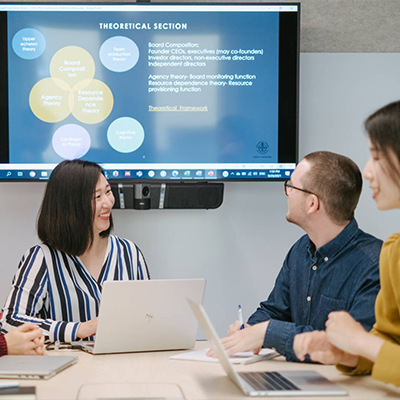
We are thrilled that you are considering joining our organization! At SSE, we believe that the key to success lies in the talent, passion, and dedication of our exceptional team, and we are delighted to have you as a potential member of our community. Presented below is a comprehensive overview of a typical recruitment process for individuals aspiring to work in administrative positions at SSE.
As one of the leading business schools in the world, the Stockholm School of Economics offers a dynamic and intellectually stimulating environment where innovative ideas flourish, and ambitious goals are achieved. Our commitment to academic excellence, coupled with a strong emphasis on practical application, ensures that our graduates are equipped with the knowledge and skills to make a real impact in their chosen fields.
By considering a career with us, you are opening doors to new possibilities. Whether you aspire to be a part of our faculty, or support the growth and development of our institution, your talent and expertise will be valued and cherished.

(Click for more information)
The first step in the recruitment process is typically submitting an application, which may include a CV, cover letter, and other supporting documents.
At SSE, we use a recruitment system called varbi, through which we request applicants to upload their applications. Please be assured that any information you provide through Varbi is handled in strict accordance with the General Data Protection Regulation (GDPR) guidelines. We prioritize the privacy and security of your personal data throughout the recruitment process.
After receiving your application, the recruitment team will screen it to determine whether you meet the basic qualifications for the position. This may include reviewing your education and work experience.
In some recruitments, we are fortunate to receive many seemingly qualified applicants and will continue with the applications who meet the requirements and any experiences or qualities mentioned as a plus in the ad.
If you pass the screening stage, you will likely be invited for an interview. This may be a phone interview, online interview, or in-person interview, depending on your location and the preferences of the recruitment team.
In some cases, multiple interviews are conducted. At least one of the interviews is a competency-based interview. You will find more information about what that is and how to prepare further below.
In the end of the interview or after the interview, the interviewer usually provides more information about when they will be in contact with you again.
Some positions at the Stockholm School of Economics may require additional assessments, such as skills tests or personality assessments. These are designed to give the recruitment team a more comprehensive understanding of your abilities and fit for the position.
At SSE, we use a test provider called Aon, which is one of the largest test providers in Sweden. The tests are based on the big five research, and they have customers in several parts of the world.
When taking the tests, the interviewer or another member of the HR Department will go over your test results together with you. Especially when taking a personality assessment, we do this as we want to create a joint understanding of your results where you will have the chance to reflect on your results and if there are any aspects of it that you feel less or more aligned with. The HR representative may ask follow-up questions.
The recruitment team will also contact your references to verify your work experience and qualifications. Once you have reached this stage, the recruitment team will ask for your references.
We use a system called Refapp for requesting and gathering input from referees. The system simplifies the reference collection process, ensuring efficiency, confidentiality, and compliance with data protection regulations. Structured and standardized reference taking also removes cognitive bias (subjectivity/gut feeling) and increases the reliability and validity of reference taking.
If you are successful in the recruitment process, you will receive an offer for the position. The offer will typically include details such as salary, benefits and start date.

(Click for more information)
Competency-based interviews are common in Sweden and are based on specific competencies identified by the organization or industry. At SSE, we use the Malin Lindelöw competencies, which are also widely adopted by many Swedish organizations. Here are some tips on how to prepare for a competency-based interview at SSE:
The Malin Lindelöw competencies include abilities like teamwork, problem-solving, communication, and leadership. Review the competencies included in the ad and think about how you have demonstrated them in your past experiences.
In a competency-based interview, you will be asked to give specific examples of how you have demonstrated the competencies. Practice using the STAR method (Situation, Task, Action, Result) to structure your responses. You will be asked to provide specific and concrete examples.
Research SSE and our culture to understand values and how the organization operates. This can help you tailor your responses to the SSE’s specific needs.
Competency-based interviews are designed to get a sense of your true skills and experiences, so it's important to be honest and authentic in your responses. At SSE, we always try to find the best fit from both sides, as it is important for creating the best possibilities for thriving and performing well here.
Prepare questions to ask the interviewer or other representatives you meet. This is a chance for you to learn more about SSE, culture, fit and other aspects you are interested in. Asking questions also shows that you are interested and engaged in the process. There is usually about 5-10 minutes dedicated to your questions. If you have more questions, the interviewer or SSE representative is usually available to connect over phone or email after the interview.
SSE does not have a formal dress code, and it is important that everyone can be themselves here. Informally, we recommend you to follow the principle which in Swedish is called “helt och rent” (direct translation is “undamaged and clean”). This dress code encourages clothes that are clean and well-maintained.

(Click for more information)
Required competencies may vary depending on the position you are interested in. Below you will find the Malin Lindelöw competencies.
Business mindset
Understands and carries out business principles in a good way. Focuses on costs, income, profit, markets and output.
Decisive
Can make quick decisions and act on them, despite limited information or challenging circumstances. Shows good judgement under time pressure.
Driven
Sets high goals and works hard to reach them. Is motivated and focused on work and actively seeks challenges and development opportunities.
Financial awareness
Understands and carries out business principles. Focuses on costs, income and efficiency from a financial perspective.
Empathic
Has the ability see things from another person’s perspective or situation, without being negatively affected by the other person’s feelings.
Flexible
Is flexible and can easily adapt to changed circumstances. Can quickly change their viewpoint and approach.
Persistent
Stays motivated and effective despite setbacks and disappointments. Keeps working on a project or assignment until it is completed or results have been reached.
Integrity
Has well-founded and clear values and an ability to approach questions objectively from an ethical perspective. Follows ethics and values in crucial situations at work.
Self-starting
Can make quick decisions and take initiative. Starts activities and achieves results.
Creative
Is good at finding new approaches in work-related questions. Often has new ideas and questions more traditional approaches. Is innovative and can turn theory into practice to achieve results.
Quality-conscious
Is accurate and well aware of goals and quality standards. Makes a great effort to live up to these.
Leadership
Leads, motivates and provides others with the necessary authorization to efficiently reach mutual goals. Coordinates groups and follows up on others’ work.
Loyal
Expresses a positive attitude to the job, the business and/or the organization. Acts according to made decisions, the business plan, goals, policies and guidelines.
Oral presentation
Speaks clearly, articulately and actively in both small and larger groups. Listens and is receptive towards others and adapts to the situation.
Multi-cultural competence
Values differences and understands how background, culture and group belonging affect oneself and others. Can take this into account when decisions are being made and when choosing approaches.
Numerical analytical ability
Understands numerical material. Solves numerical tasks quickly and correctly.
Judgement
Prioritizes and makes correct decisions. Shows good judgement when making statements or decisions as well as when taking actions based on a summarization of complex information and different things to consider.
Problem-solving skills
Analyzes and breaks down problems to their components. Can see contexts and prioritize significant questions. Works well with complex questions and solves complicated problems.
Relationship-oriented
Is outgoing and socially active in professional contexts. Creates and maintains relationships.
Collaborative
Works well with other people. Can relate to other people in a perceptive and adaptable way. Listens, communicates and resolves conflicts in a constructive way.
Service minded
Has a composed, attentive and accommodating approach. Has an interest in, desire and ability to help others and strives to find solutions.
Autonomous
Takes responsibility for a given task, can independently structure the approach and drives processes forward.
Specialist
Understands the professional aspects of their work particularly well. Continuously keeps their specialist knowledge up to date. Is a resource of knowledge to others.
Linguistic
Understands complicated linguistic material, both oral and written. Produces documents of high quality.
Strategic
Thinks strategically and has a holistic approach. Sees the long-term significance and effect and adapts actions accordingly.
Stress-resilient
Is composed, balanced and controlled in stressful situations. Keeps a realistic perspective and focuses on the significant parts.
Structured
Plans work ahead of time. Organizes and prioritizes activities in an efficient way. Sets and keeps deadlines.
Convincing
Can influence and convince others. Can get others to agree or change their opinions or behavior.
At SSE, we foster a vibrant and inclusive work culture that celebrates diversity and encourages collaboration. We believe that the best ideas are born through the exchange of perspectives and the cultivation of a supportive community. Here, you will find yourself surrounded by like-minded individuals who are passionate about making a difference and who will inspire you to reach your full potential.